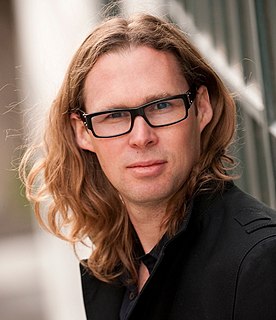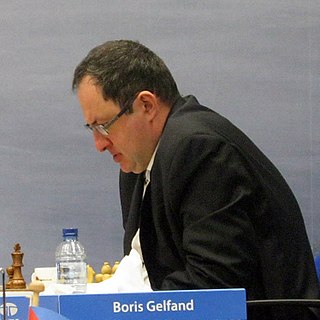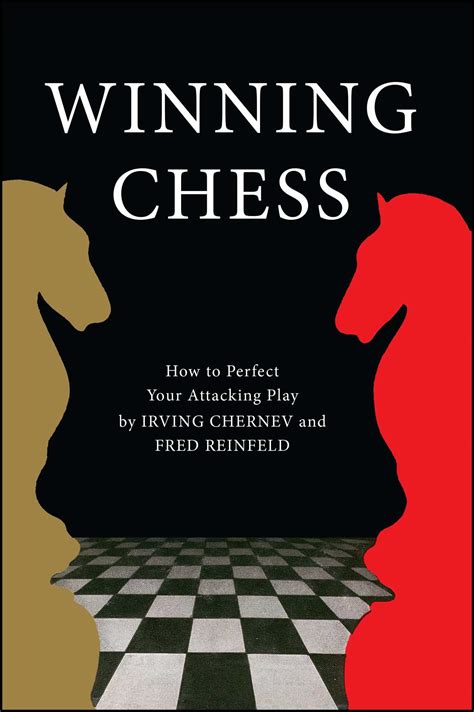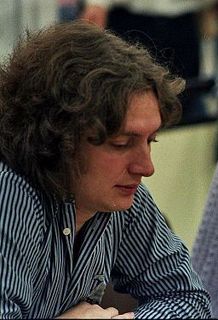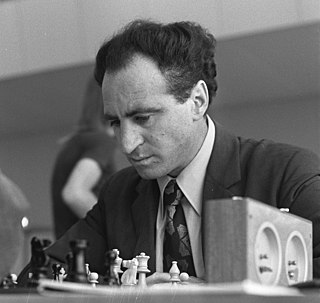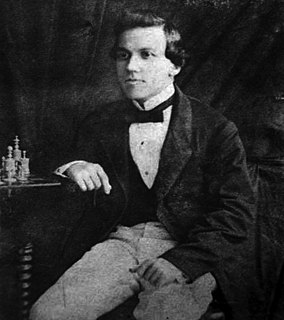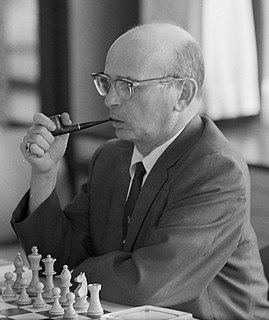A Quote by Emanuel Lasker
He who wants to educate himself in Chess must evade what is dead in Chess... the habit of playing with inferior opponents; the custom of avoiding difficult tasks; the weakness of uncritically taking over variations or rules discovered by others; the vanity which is self-sufficient; the incapacity for admitting mistakes; in brief, everything that leas to standstill or to anarchy.
Quote Topics
Admitting
Anarchy
Avoiding
Brief
Chess
Custom
Dead
Difficult
Difficult Task
Difficult Tasks
Discovered
Educate
Everything
Habit
Himself
Incapacity
Inferior
Mistakes
Must
Opponents
Others
Over
Playing
Rules
Self
Self-Sufficient
Standstill
Sufficient
Taking
Tasks
Vanity
Variations
Wants
Weakness
Which
Related Quotes
I love chess, and I didn't invent Fischerandom chess to destroy chess. I invented Fischerandom chess to keep chess going. Because I consider the old chess is dying, it really is dead. A lot of people have come up with other rules of chess-type games, with 10x8 boards, new pieces, and all kinds of things. I'm really not interested in that. I want to keep the old chess flavor. I want to keep the old chess game. But just making a change so the starting positions are mixed, so it's not degenerated down to memorisation and prearrangement like it is today.
Like Dvoretsky, I think that (all other things being equal), the analytical method of studying chess must give you a colossal advantage over the chess pragmatist, and that there can be no certainty in chess without analysis. I personally acquired these views from my sessions with Mikhail Botvinnik, and they laid the foundations of my chess-playing life.
I was a professional chess player in Romania, but only a small-time master. When I came to France, I continued playing chess for many years: I played tournaments in numerous countries with mixed results. I wrote and published a book - La Défense Alekhine and translated two others from Russian. I taught chess in schools; I earned more money through chess than through literature.
I started playing chess when I was about 4 or 5 years old. It is very good for children to learn to play chess, because it helps them to develop their mental abilities. It also helps to consolidate a person's character, because as it happens both in life and in a chess game we have to make decisions constantly. In chess there is no luck and no excuses: everything is in your hands.
By playing at Chess then, we may learn: First: Foresight... Second: Circumspection... Third: Caution...And lastly, we learn by Chess the habit of not being discouraged by present bad appearances in the state of our affairs, the habit of hoping for a favorable chance, and that of persevering in the secrets of resources
But the thing that was great about Capablanca was that he really spoke his mind, he said what he believed was true, he said what he felt. He [Capablanca] wanted to change the rules [of chess] already, back in the twenties, because he said chess was getting played out. He was right. Now chess is completely dead. It is all just memorisation and prearrangement. It's a terrible game now. Very uncreative.
I love the competitive aspect of it [business]. It's like playing chess. Why do people play chess? Knowing the realm of moves? Even when you get to be a chess master, there are other chess masters you want to beat or outperform. And to me business is just a sport that I love to compete in; a continuous intellectual challenge that really motivates me.













